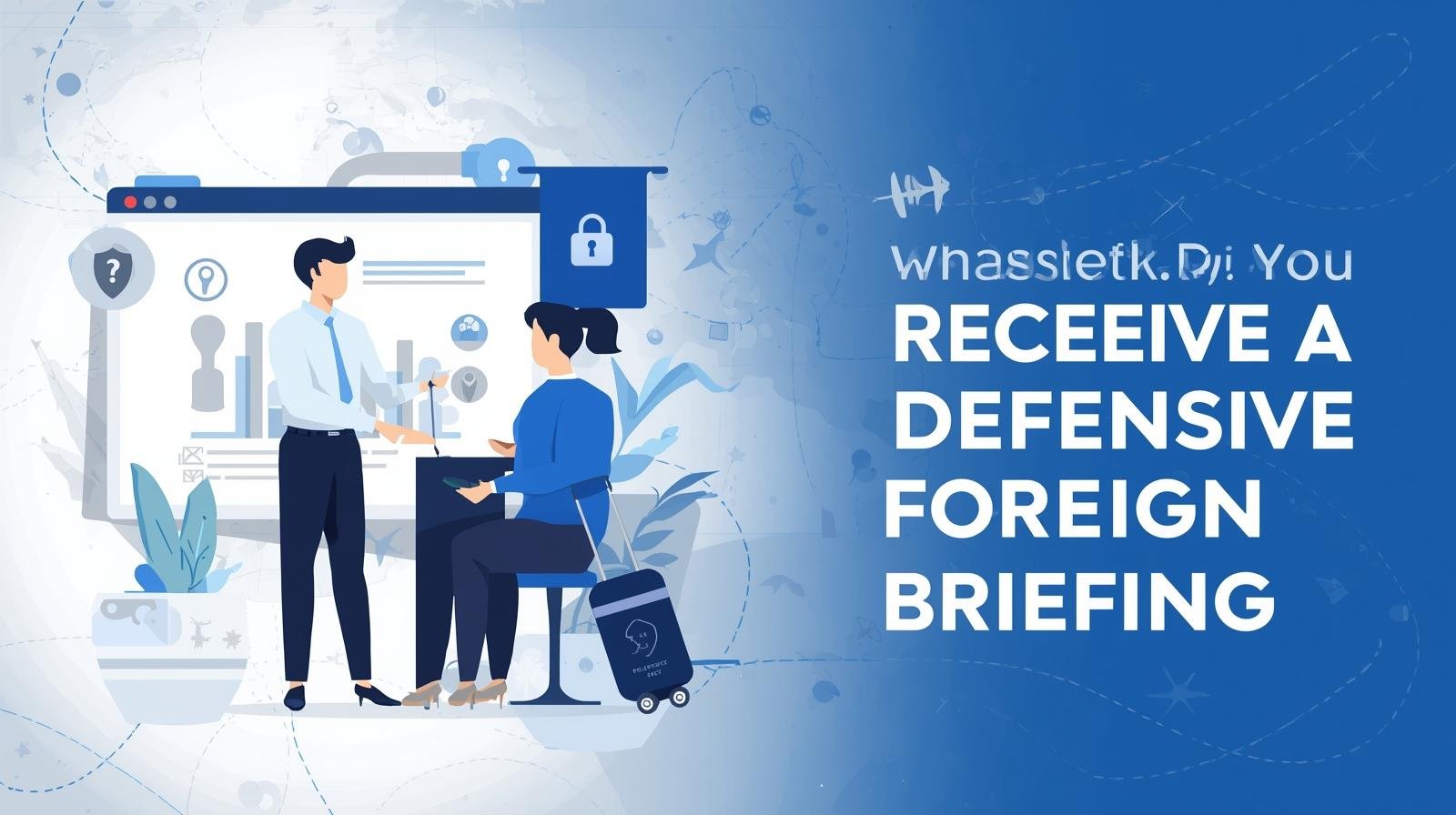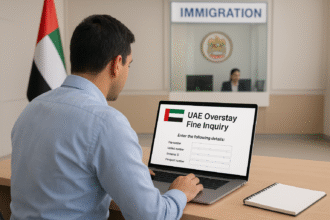When Must You Receive a Defensive Foreign Travel Briefing Going abroad for work or pleasure can be a fun chance, but it also has its risks. Before going to some countries, employees and contractors of governments, agencies, and organizations with sensitive data must get defensive foreign travel briefings. These briefings help travelers spot threats, keep personal and business information safe, and make sure they can move safely between countries.
This guide tells you when, what, and why you need When Must You Receive a Defensive Foreign Travel Briefing if you’re wondering, “When do you need to get one?”
What is a briefing on defensive foreign travel?
A defensive foreign travel briefing is a planned meeting, usually led by a security officer or government agency, that teaches people who are going abroad about possible dangers they may face. Some of these threats are:
- Risks of espionage (foreign intelligence targeting travelers).
- Threats of crime and terrorism.
- Weaknesses in cybersecurity.
- Governments of host countries watch and keep an eye on things.
- Health and safety risks that are specific to the country you are going to.
The briefing also gives useful tips on how to stay safe while communicating, how to act when someone approaches you in a suspicious way, and how to respond.
When do you need to get a Defensive Foreign Travel Briefing?
Whether or not you need to go through a defensive foreign travel briefing depends on your job, your security clearance level, and why you are traveling. Here are the most common situations:
1. Before any official travel by the government or military
If you work for the government, the military, or a defense contractor and are going abroad for work, you must get a defensive foreign travel briefing before you leave. This makes sure you know all the security issues that come up during your mission or assignment.
2. When going to countries with a lot of risk
Some places are thought to be high-risk because of terrorism, spying, or unstable political situations. In these situations, even personal travel needs to be planned ahead of time. The Department of Defense (DoD) and the Department of State in the U.S. keep up-to-date lists of these kinds of countries.
3. For travelers who have security clearances
People who have confidential, secret, or top-secret clearances often have to go through defensive briefings before they can travel abroad, whether for work or pleasure. This keeps them safe from sensitive information they might accidentally carry.
4. Before going to international events or conferences
If you’re going to academic, scientific, or industry conferences in other countries, especially in places where collecting foreign intelligence is common, you must get a defensive briefing. These kinds of places are great places for people to steal data and try to hire people.
5. When the employer or organization says so
A lot of companies and research institutions that work on advanced technology, defense, or critical infrastructure make their employees go through a defensive foreign travel briefing before they go on business trips abroad.
6. Before personal vacations (in some cases)
You don’t need a briefing for every trip you take. But if you want to go to a country where there is a lot of spying, security alerts, or health problems, your employer or agency may require you to do so.
Why are defensive foreign travel briefings so important?
Knowing why these briefings are important shows how useful they are:
Protecting National Security: Foreign intelligence operations must not be able to get to sensitive information.
Making sure travelers are safe: These briefings get travelers ready for real-world risks, like staying away from dangerous neighborhoods and avoiding scams.
Reducing Cybersecurity Risks: Travelers learn how to keep their devices safe, stay away from risky public Wi-Fi, and stop data theft.
Following the Rules: Many government agencies require briefings as part of the process for getting travel clearance.
Cultural Awareness: Briefings often include advice on local laws, customs, and manners to help people understand each other better.
What Are the Topics Covered in a Defensive Foreign Travel Briefing?
A normal briefing will usually have:
- Rules for staying safe while traveling (getting around, staying in hotels, and talking to people in the area).
- Cybersecurity rules (like using encrypted communication and staying away from networks that look suspicious).
- Being aware of counterintelligence (being able to spot attempts at spying or coercion).
- What to do if you get arrested, there is a natural disaster, or you have a medical emergency.
- Awareness of cultural and legal issues (local laws, customs, and manners).
How to Get Ready for a Defensive Foreign Travel Briefing
If you have a briefing coming up, here are some things you should know:
- Give your security officer all the details about your trip.
- Ask questions to make sure you understand the specific risks that come with your destination.
- Take notes because the advice may be long, and having notes will help you while you travel.
- Follow the rules for post-travel debriefing. Many organizations also want you to report any suspicious contacts you had while you were away.
- Common Mistakes Travelers Make When They Don’t Get Briefed
- Using your own devices on networks that aren’t safe while you’re away.
- Taking help, invitations, or gifts from strangers without asking.
- Ignoring local laws and customs can get you arrested or fined.
- Sharing too much personal or work information on social media while traveling.
- Not telling anyone about strange interactions after getting home.
Last Thoughts
So, when do you need to get a briefing on defensive foreign travel?
It depends on your job, why you’re going, and where you’re going. If you work for the government, have a security clearance, or plan to visit countries with a lot of danger, you must do this before you leave. Getting a briefing before a personal trip makes you more aware, safer, and more likely to follow the rules.
Traveling to other countries can be both a good and bad thing in today’s connected world. No matter where you go, a defensive foreign travel briefing makes sure you’re ready to keep yourself and sensitive information safe.





